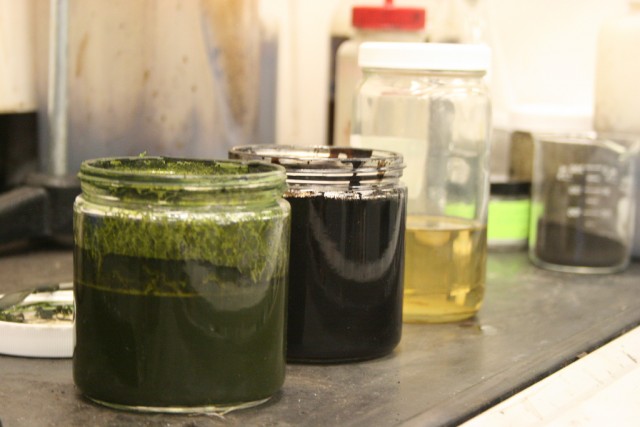Algae go in, biocrude oil comes out
Ars Technica » Scientific Method 2013-12-20

The term "biofuels" actually encompasses a host of largely unrelated technologies. So far, it has largely meant ethanol, generated by fermenting the sugars found in crops, while research is attempting to make it from the cellulose that gives all plants their structure. But you can also convert biological materials to things like biodiesel or other replacements for the fuels we already use.
Even in that area, however, there are several different approaches. One is to engineer organisms to make molecules that we can drop directly into our fuel tanks. Another is to get those organisms to produce an excess of the lipids they normally require and then subject them to a mild bit of processing in order to convert the lipids to fuel. This week, researchers announced progress with a third approach: subjecting the microbes to a chemical process that converts them to a complex mixture that's a bit like crude oil.
The authors of the new paper point out the trade-offs between approaches in their introductions. It's possible to select algae that are naturally rich in lipids and then grow them under conditions that induce them to produce even more. But the lipid-rich strains don't grow as fast as many others, and the conditions that get the most fuel out of them slow down growth even more. If you just take a take a typical species of algae and grow them in optimum conditions, you get a lot more raw material much more quickly.
Read 8 remaining paragraphs | Comments




